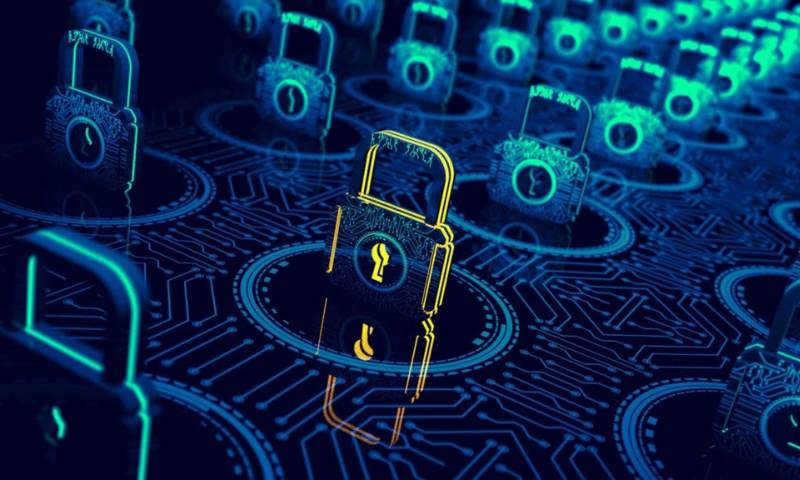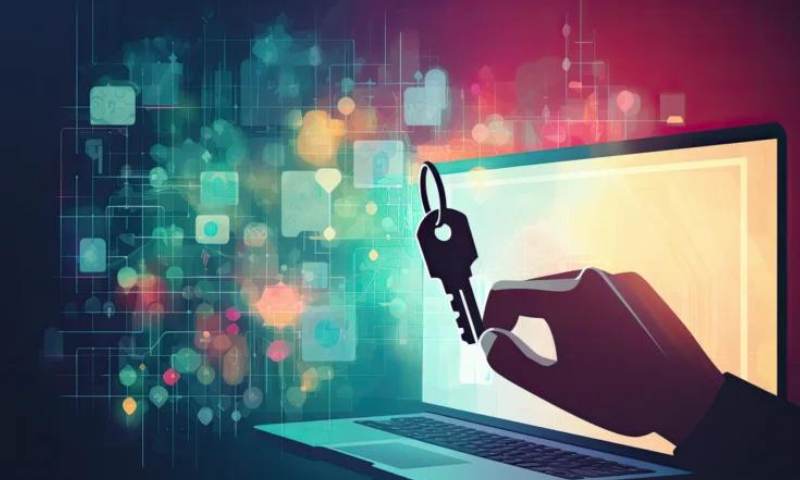Lost Private Key in Blockchain: Unlocking the Mystery of Crypto Asset Recovery
Have you faced the panic of a lost private key in blockchain? You’re not alone. This key is your access to crypto wealth, and without it, you might as well be locked out of a vault full of gold. But don’t lose hope just yet. I’m here to guide you through the dark tunnels of crypto asset recovery—and trust me, there’s light ahead. Let’s unravel this mystery together and get your digital treasures back in your hands.
Recognizing the Impact of Lost Blockchain Keys
Consequences of Losing Private Keys
Losing private keys is like losing the keys to a treasure chest. Without them, we can’t open our chest of crypto assets. No key, no access. It’s that simple—and that serious. Keeping keys safe is vital. If lost, anyone who finds them could take our crypto. We must keep our keys secret and secure to protect our assets.
Impact of Lost Keys on Asset Value
When keys are lost, our crypto’s value might as well be zero. It’s trapped, and we can’t use it. The rising or falling prices don’t matter if we can’t access our assets. Safe and secure keys mean we keep control. They help us avoid the pain of lost value due to misplaced keys.
Losing keys can seem like the end, but there’s hope. We can set up backups and plans to avoid or fix this. If our private keys are lost, we should act fast. We must try every method, like recovery services or forensic experts. But prevention is better than cure. We can use key management services and multisig protocols for safety. These tools can help us keep our keys safe and our crypto secure.
Remember: without our keys, we don’t own our crypto. It’s our job to make sure that never happens. Learning key security is the best step we can take to protect our assets. We must all learn to secure our keys and have a backup plan ready. That way, we can enjoy the benefits of blockchain with peace of mind.
Prevention and Security Measures for Key Management
How to Prevent Losing Keys
Losing keys is like losing cash. Gone for good. To stop that, act smart. Use strong passwords and remember them. Keep backups in different places. This helps if one copy gets lost. Lock up backups in a safe or safety deposit box. Make it hard for thieves. Be secretive. Don’t tell everyone about where you keep your keys.
Blockchain Security Measures
Think of blockchain like a vault. It’s strong but needs good guards. That’s where security steps in. To protect keys, use multi-signature setups. That means more than one person has to say “yes” to open the vault. It’s a good way to spread risk. Smart contracts can also help. If keys are lost, the contract has steps to get them back. The contract acts like a safety net.
Store keys in hardware wallets for an extra layer of safety. They’re like special USBs that hold your crypto away from the internet. So hackers have a harder time getting to them. Software wallets work too, but remember, they need strong, unique passwords. Using a mix of both might work best.
For those tech savvy folks, decentralized identity verification can help. It’s a way to prove who you are without giving out too much info. It’s tricky but worth it for safety.
Remember, key security in blockchain keeps your assets safe. Think of it as building a fortress around your treasure. It takes time, but it keeps the bad guys out. Plan ahead. Create an emergency kit. List all the places where backups are and put it somewhere safe. Talk to key management services if you feel lost. They’re like guides in the wild world of crypto.
Never forget the risks of holding your own crypto. Yes, it gives you control, but with great power comes great responsibility. So, take charge by being prepared. In the end, Good key management is like having a good life jacket. It keeps your assets afloat even when the sea gets rough.
Recovering lost keys starts long before they’re missing. Stay sharp. Be the wise guardian of your own keys.
Remember, the goal is never to need a recovery. Keep keys safe, and the mystery of lost blockchain access remains just a story for others.
Recovery Options and Strategies
Steps to Recover Lost Keys
Losing keys to your crypto assets can turn your stomach into knots. Let’s soften that knot. The first thing is don’t panic. Stay calm and recall your last interactions with your keys. Did you write them down somewhere? Maybe back them up on a USB stick? Think hard. Once you’ve done that, it’s time to explore more technical options, like using specialized software to retrieve keys from your device.
Private Key Recovery Options
If searching doesn’t pan out, you’ve still got options. Start with your wallet’s seed phrase. Those 12 or 24 words you saved when you made your wallet? They’re your crypto lifeline. Put them into a trusted wallet app, and you’re back in the game. No seed phrase? It gets trickier, but not hopeless.
Another way to get back access is multi-signature protocols. They need more than one key to okay a transaction. This means if you lose a key, you’ve got backups. Still stuck? Check for an encrypted wallet backup. If you have one, there’s a good chance you’ll recover your assets.
And if these don’t work, you can turn to pros for help. Crypto asset retrieval is a growing field. There are experts who specialize in unlocking your locked-out wallets. Reach out to them, and you might just find your solution.
It’s not just about getting back in, though. You need to keep this from happening again. Key management best practices are crucial. Get a hardware wallet, back up your keys, and maybe even use a key management service. They’ll help manage your keys so you won’t lose them.
Remember, every case is different. What works for one might not for another. So, if things feel bleak, don’t give up hope. There’s an entire industry evolving dedicated to help folks just like you.
Keeping these strategies in mind will not only help you recover your keys but also prevent future mishaps. Trust in the tools and people available. Your crypto journey isn’t over. It’s just hitting a little bump.
Future-Proofing Your Crypto Assets
Contingency Plan for Key Loss
Losing keys can lock you out of your crypto. It’s like losing the key to a treasure chest. To avoid this, always have a backup plan. Keep a copy of your key in a secure place. If you use a passphrase, write it down too.
A good plan uses encrypted wallet backups. This keeps your key safe even if someone finds it. Hardware wallets offer another layer of safety. They store keys offline, away from hackers.
It helps to use services that manage keys for you. They are like banks for your crypto keys. But remember, even they can have problems. It’s best to understand your backup options well.
Implications for Blockchain Inheritance
What happens to your crypto after you? It’s a big question. If you pass away, your family should get your assets. But without your key, they can’t. So, think like a pioneer and prepare.
First, make sure they know you hold crypto. Then, set up a way to pass on your keys. This could be part of your will or a separate plan. Use trusted family or services that help with inheritance.
Remember, laws around this are still new. They may change. Keep up with these to make sure your plan works when needed. It’s all about being ready for what comes, even after you’re gone.
To wrap it up, we’ve dived into the serious issue of losing blockchain keys and how that hits your asset’s value. We’ve looked at ways to stop this from happening and the strong security steps you should take. If your keys get lost, don’t lose hope. There are steps you can take to recover them, and we talked about some solid options. Plus, we tackled how to keep your crypto safe for the long run, even when you’re not around, by setting up a plan for the future.
Looking at all this, it’s clear: staying sharp with your key management is a must-do. Make a plan, use tough security, and always have a backup strategy. This way, you’ll keep your digital wealth safe today and for years to come. Looking after your keys is like looking after your money – it’s that important! So, take action now and stay ahead in the crypto game.
Q&A :
What are the consequences of losing a private key in blockchain?
Losing a private key in blockchain can have serious consequences since it effectively locks you out of your blockchain wallet, making it impossible to access your funds or assets associated with that key. It also means you lose the ability to authorize transactions or manage the associated blockchain address. Moreover, due to the decentralized and secure nature of blockchain, there’s typically no way to recover a lost private key, which could result in a permanent loss of your digital assets.
Is it possible to recover a lost blockchain private key?
Recovery of a lost blockchain private key is usually not possible. Private keys are designed to be known only to the owner and are not stored centrally, so there is no ‘forgot my password’ option like there is with conventional web services. If you haven’t backed up your private key or do not have a recovery phrase or seed, the chances of recovery are extremely slim. It’s crucial to keep private keys secure and have a backup to prevent such situations.
How can I secure my blockchain private key to prevent loss?
Securing your blockchain private key is essential to ensure the safety of your assets. Always keep your private key in a safe, secure location and never share it with anyone. Consider using hardware wallets, which are physical devices that store your private key offline, or paper wallets, which are physical printouts of your private key. Also, make use of strong encryption and consider multiple backups in different physical locations. It’s advisable to create a recovery seed or phrase when setting up your wallet, which can help you regain access in case of loss of the key.
What steps should I take if I’ve lost my private key but still have my wallet address?
If you’ve lost your private key but still have your wallet address, you should first check if you have any backups of your key or a recovery phrase. If backups are not available, unfortunately, there’s not much that can be done to regain access to the assets in that wallet. To prevent further loss, transfer any incoming funds to a new wallet (for which you do have the private key) as soon as possible. For future security, consider reevaluating your strategy for storing and backing up your private keys to prevent a repeat of the situation.
Are there any best practices for managing and storing private keys for blockchain wallets?
Yes, there are several best practices for managing and storing private keys for blockchain wallets to maximize security and prevent loss. Always backup your private key and/or recovery seed phrase in multiple secure locations, away from potential environmental damage like fire or water. Use a hardware wallet for an additional layer of security. Never store your private key in plain text on your computer or online storage. And most importantly, use a strong, unique passphrase to encrypt your private key if the option is available. Regularly updating and testing your backup procedures can also help ensure the safety of your private keys.


